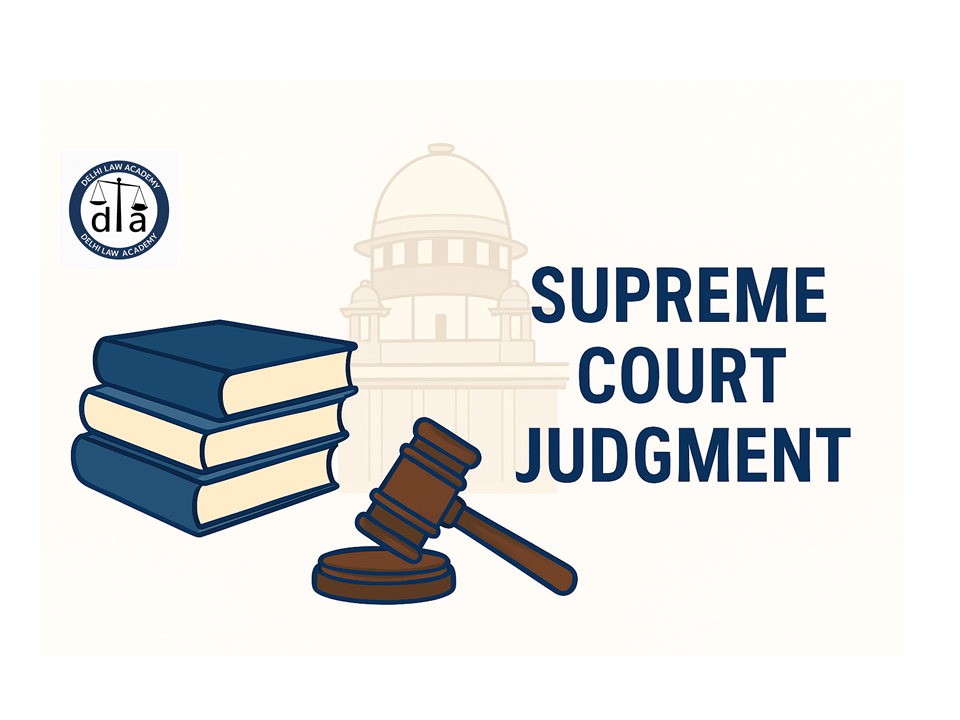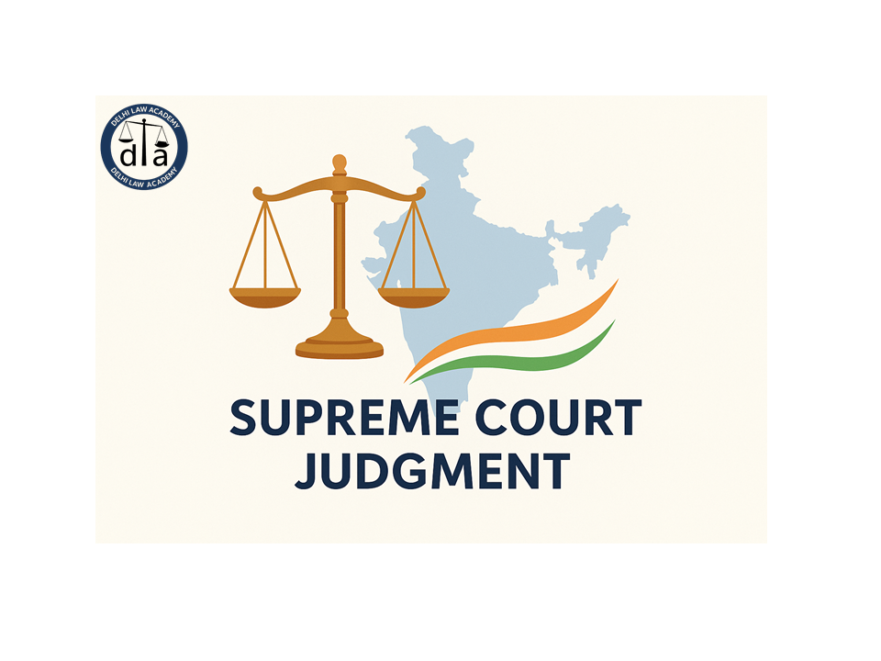
⚖️ The Defence of Alibi under the Evidence Act – Section 11
Case: Jayantibhai Bhenkarbhai v. State of Gujarat [2002 SC]
Statute Involved: Section 11, Indian Evidence Act, 1872
📘 Understanding Section 11 of the Evidence Act
Section 11 of the Evidence Act, 1872 provides that facts not otherwise relevant are relevant if they are inconsistent with any fact in issue or relevant fact or if by themselves or in connection with other facts they make the existence or non-existence of any fact in issue or a relevant fact highly probable or improbable.
🕵️♂️ The Concept of Alibi
The plea of alibi flows from Section 11 and is demonstrated by Illustration (a). The word “alibi” is of Latin origin and means “elsewhere”. It is a convenient term used for the defence taken by an accused that when the occurrence took place he was so far away from the place of occurrence that it is highly improbable that he would have participated in the crime. Alibi is not an exception (special or general) envisaged in the Indian Penal Code or any other law. It is only a rule of evidence recognized in Section 11 of the Evidence Act that facts which are inconsistent with the fact in issue are relevant.
⚖️ Burden of Proof and the Role of Prosecution
The burden of proving commission of offence by the accused so as to fasten the liability of guilt on him remains on the prosecution and would not be lessened by the mere fact that the accused had adopted the defence of alibi. The plea of alibi taken by the accused needs to be considered only when the burden which lies on the prosecution has been discharged satisfactorily. If the prosecution has failed in discharging its burden of proving the commission of crime by the accused beyond any reasonable doubt, it may not be necessary to go into the question whether the accused has succeeded in proving the defence of alibi. But once the prosecution succeeds in discharging its burden then it is incumbent on the accused taking the plea of alibi to prove it with certainty so as to exclude the possibility of his presence at the place and time of occurrence. An obligation is cast on the court to weigh in scales the evidence adduced by the prosecution in proving the guilt of the accused and the evidence adduced by the accused in proving his defence of alibi.
⚖️ Evaluating Evidence for Alibi
If the evidence adduced by the accused is of such a quality and of such a standard that the court may entertain some reasonable doubt regarding his presence at the place and time of occurrence, the court would evaluate the prosecution evidence to see if the evidence adduced on behalf of the prosecution leaves any slot available to fit therein the defence of alibi. The burden of the accused is undoubtedly heavy. This flows from Section 103 of the Evidence Act which provides that the burden of proof as to any particular fact lies on that person who wishes the court to believe in its existence. However, while weighing the prosecution case and the defence case, pitted against each other, if the balance tilts in favour of the accused, the prosecution would fail and the accused would be entitled to the benefit of that reasonable doubt which would emerge in the mind of the court.
🔍 Court’s Observation in the Present Case
Reverting back to the facts and circumstances of the case and keeping in view the nature of the accusations made against the accused-appellant and weighing the same against the overwhelming defence evidence adduced by the accused-appellant in support of his plea of alibi, in our opinion, a reasonable doubt is created in the prosecution case so far as the participation of this accused-appellant in the incident is concerned. We have already noted, the High Court itself, having arrived at a finding in favour of the accused-appellant that his presence at Gandhinagar up to 11.00 a.m. on the date of the incident cannot be doubted. That being so, it is rendered highly improbable if the accused-appellant could have reached back to Village Singpur by the time the incident happened.
✅ Judgment and Conclusion
For the foregoing reasons, we are of the opinion that the accused-appellant is entitled to the benefit of doubt and his appeal therefore deserves to be allowed.
Though we are holding Jayantibhai Bhenkarbhai, the accused-appellant before us entitled to acquittal, we are conscious of the fact that the High Court has held five accused persons guilty and convicted them with the aid of Section 149 IPC. With the acquittal of Jayantibhai, the accused-appellant before us, the number of culprits who participated in the incident is reduced to less than five and the charge with the aid of Section 149 IPC falls to the ground. We could have, in exercise of our jurisdiction under Article 136 of the Constitution, entered into the legality and propriety of the conviction of the non-appealing accused persons also. However, in the facts and circumstances of the present case, we are not inclined to do so. Though the charge with the aid of Section 149 IPC may fail, yet the non-appealing accused persons could still have been held liable to conviction with the aid of Section 34 IPC in which event the sentences would have remained the same. Be that as it may, inasmuch as the other accused have chosen not to file any appeal of their own, we are not inclined to enter into examining the sustainability of the conviction of the non-appealing accused persons.
📚 Further Reading for Law Aspirants
Explore more useful resources from Delhi Law Academy to strengthen your preparation:
❓ Frequently Asked Questions on the Defence of Alibi
Contact us
📍 Delhi Law Academy – Jaipur Branch
6C, Tower 2, Coaching Hub, Pratap Nagar, Jaipur – 302033
📞 Phone:
+91 9911916552
+91 8447285606
✉️ Email:
contactus@delhilawacademy.com

